When Can You Stop Burping a Baby?
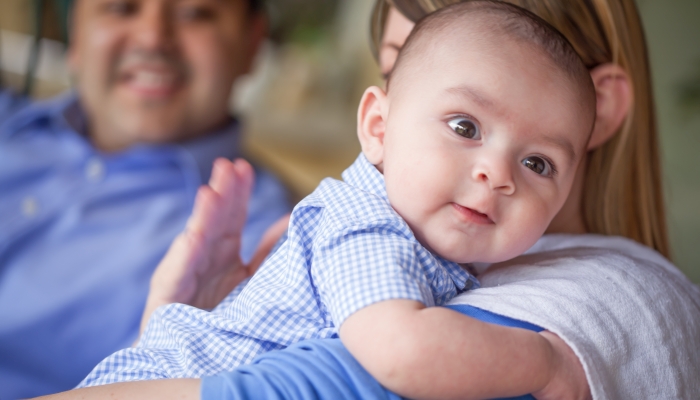
- Babies need to be burped to relieve the gas built up in the feeding process.
- You can stop burping a baby somewhere between 4 and 6 months old, though there’s no set age.
- There’s no difference in when to stop during the day versus night.
- You can follow your baby’s cues to determine if they’re done burping for good.
- Several signs will tell you if you’ve stopped burping too soon.
Nothing could ever make me forget the nighttime feeding process with a baby. The desperate need for rest, all the while knowing those little cries are only stopped with a feeding—and then a burp. For me, the baby burping process added insult to injury.
No matter what I did, my daughter would not burp, making those nighttime feeds all the more taxing, especially because I knew for a fact she would need to burp! This child would suck down a bottle quicker than you’ve ever seen, then wiggle around from what I can only assume is a gassy stomach.
Yet I’d pat and pat and come up with nothing! Not a single burp. At first, I felt she was being stubborn, but as time went on, I wasn’t sure she even needed to burp anymore.
Maybe you’ve got a stubborn baby on your hands like me, or perhaps you’re just hoping the end is in sight for those burping sessions, daytime or night. Whatever your reason, it’s helpful to know when you can stop burping your baby, when it’s too soon, and how to tell if they’re ready.
Why Do You Need to Burp a Baby?
Babies often need to be burped during feedings to relieve trapped air and gas.
The National Institute of Diabetes and Digestive and Kidney Diseases states, “Gas in the digestive tract comes from two sources: air that you swallow and the breakdown of undigested food by bacteria in the large intestine.”
Either of these scenarios are likely and quite honestly expected in healthy infants. When it comes to trapped air, babies tend to swallow air along with their milk during the eating process. That air then gets stuck in their stomachs. To relieve the gas that’s built up in the feeding process, they need to burp.
Without burping, you’ll find babies can wind up uncomfortable, the gas itself even having the potential to become painful. That said, you need to get rid of baby gas fast!
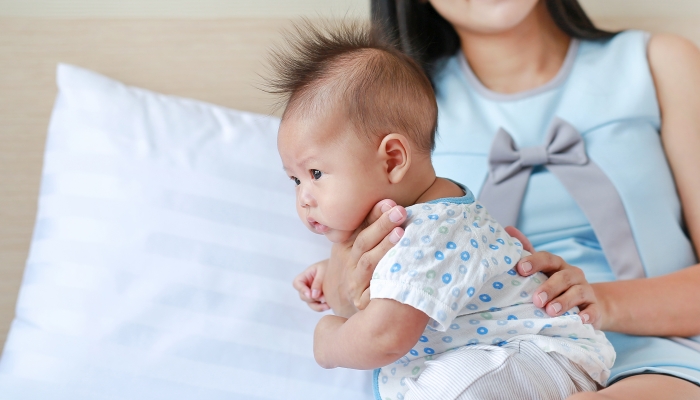
When Can You Stop Burping a Baby Completely?
Let’s get right to it. You can usually stop working for a burp somewhere between four and six months old. That said, as with most things baby related, it’s a give and take. If your baby still needs burping after 6 months old, no biggie. Some babies are known to take a bit longer than others.
I wouldn’t expect to stop burping newborns early, though. Before 4 months old, their gastrointestinal system is still in development. Given the time they need to mature, you’ll soon find they can do it on their own!
When Can You Stop Burping Your Baby at Night?
This is a valid question, especially when one more step in the midnight routine is enough to make any weary parent weep. There’s really no difference in when you stop burping a baby regarding day versus night; it’s still somewhere between four to six months old when their stomachs are fully developed.
While you’re still stuck with the nighttime feeding process just as long, there is a little piece of information that might bring some solace. Since babies eat slower at night as they’re less awake, they won’t suck in quite as much air as they do during the daytime. So if your baby won’t burp, that’s likely why.
How to Tell That Your Baby Is Ready to Stop Burping
You’ve reached the age window where your baby might be done with burping, but you’re not quite sure if they are. Fortunately, you can follow some of their cues to determine if they’re done with burping for good!
Here are a few signs to look out for:
- They do not appear to show discomfort from excess gas.
- You cannot get a burp out of them as you usually could.
- Your baby has started eating solid food with no problems.
- When your baby can sit up on their own.
If worse comes to worst and you’re still unsure, give it a trial run. Go ahead and feed your baby like normal and skip the burping session. If all goes well afterward, you know they’ve ditched the need to burp after all.
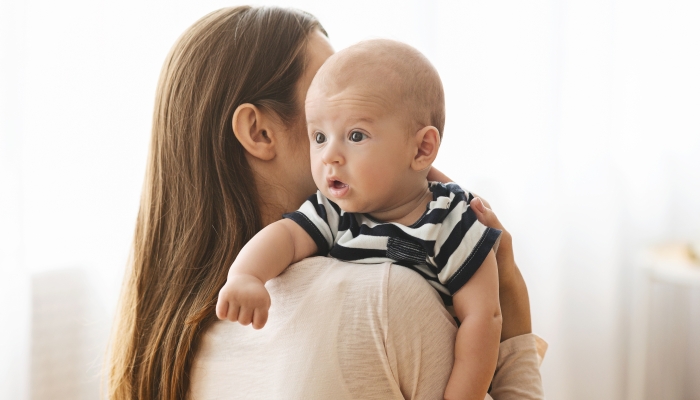
What Happens When I Stop Burping My Baby Too Soon?
As nice as it is when your baby drops the need to burp altogether, it’s not a process you want to rush. An unburped baby can make for an unpleasant time for all involved!
If you notice some of these signs, you should continue burping your baby for the time being:
- Excessive spit up.
- Squirmy during the feeding.
- Pulling knees to chest.
- They’re visibly uncomfortable and fussy.
- Waking at night in discomfort.
- Resisting the feed halfway through.
- Milk coming out of baby’s nose (due to immature digestive tract).
FAQ
Does a bottle-fed baby or breastfed baby burp more?
Breastfed babies need less burping than bottle-fed babies. Some breastfed babies don’t even feel the need to burp! That’s because the milk flow is much more controlled than during bottle feeding.
Even with the right nipple size on a bottle, the milk will inevitably flow faster. This leaves far more room for swallowing air during bottle feeding. That extra air on the baby’s stomach leads to the need for burping babies. If your formula-fed baby is burping more than their breastfed friends, it’s completely normal!
What are the best ways to burp a baby?
There are several ways to burp your baby successfully. One isn’t necessarily best in general; it’s more what fits your baby best. What works for one baby may not work for all. That said, these are the most common baby burping techniques:
- Laying on your lap. Lay your baby face down on your lap with one hand holding their chin, using the other to pat their back softly.
- Over the shoulder. Likely the most common, you can position your baby’s head on your shoulder and rub their back in a circular motion or gently pat.
- On your lap. Propping their head up with one hand while they sit on your lap, rub or pat their back. This one worked well for my oldest, who was prone to spit up.
How long and how often should you try burping a baby in one eating session?
It can be easy to overdo it when you burp babies. You might think you’ve got to keep going, but if you’ve got no burp after about 5 minutes, your baby may not need burping. It is a good idea to try and keep your baby upright for up to 15 minutes after their feeding to prevent spit-ups and discomfort.
As far as how often you need to burp your baby during a feeding session, the general rule is every 2 to 3 ounces which works fine for most babies. If you have a baby that spits up a lot, as my first baby did, try burping every ounce to allow less air to build up.
If burping isn’t giving my baby relief, is there anything else I can do?
If that tiny digestive system is giving your child discomfort, but you just can’t seem to get a burp out of them, you’ve got a few other options to relieve that gas on their stomach. First, you can try some over-the-counter gas drops. They’re said to help dissipate gas bubbles, and some parents swear by them!
If gas has already traveled into the intestines, you may have to rely on other means of relieving it, like baby massage or bicycle legs.
Trying bicycles with their legs can work wonders. Lay the baby on their back and move their legs back and forth like riding a bike. Tummy time has also been known to help many babies relieve gas on their own, keeping a fussy baby at bay.
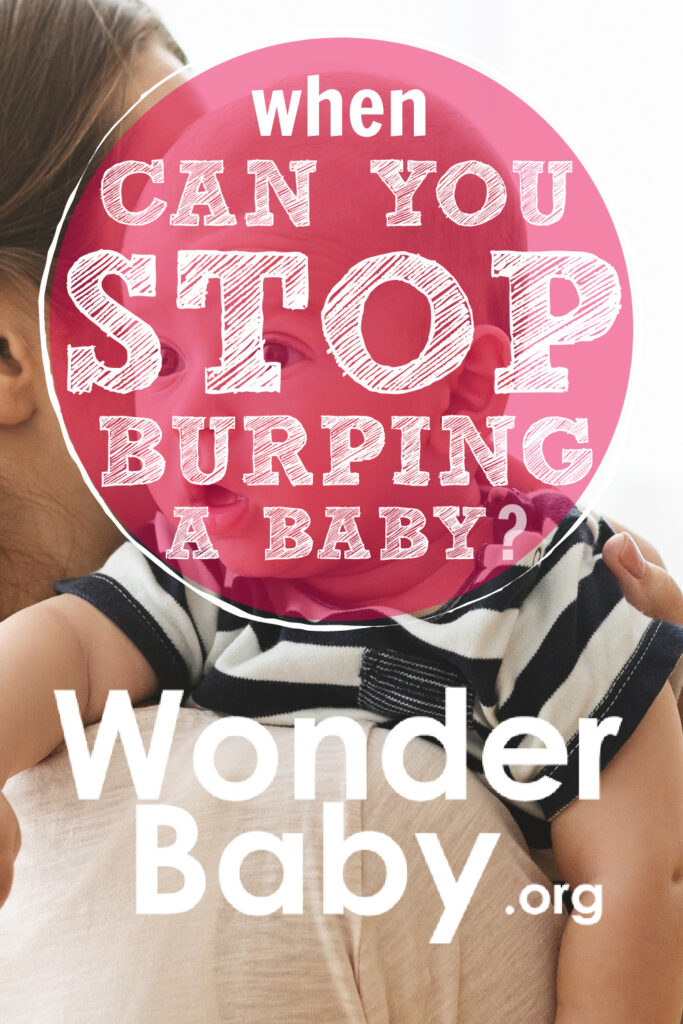
Related Posts
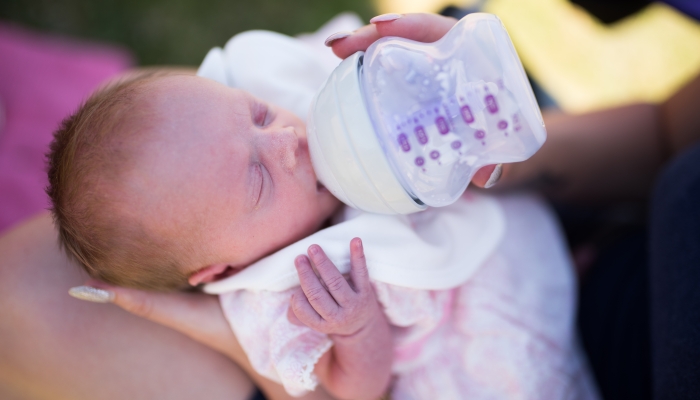
Feeding and Eating, Special Needs
Feeding Therapy Approaches for Infants with Special Needs
Many children with special needs have feeding difficulties. Working with a speech therapist, being patient, and experimenting with textures can help.

Feeding and Eating
Unexpected Foods That Cause Allergen Cross-Reactivity
A variety of unexpected foods and environmental substances can trigger an allergic reaction through cross-reactivity to food proteins.
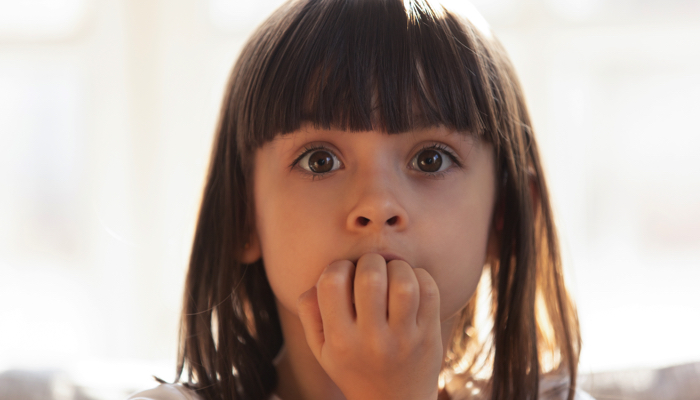
Feeding and Eating
Easing Anxiety for Families Facing Food Allergies
Ongoing physical preparations and speaking openly about anxiety can ease the transition from diagnosis to living well with a food allergy.